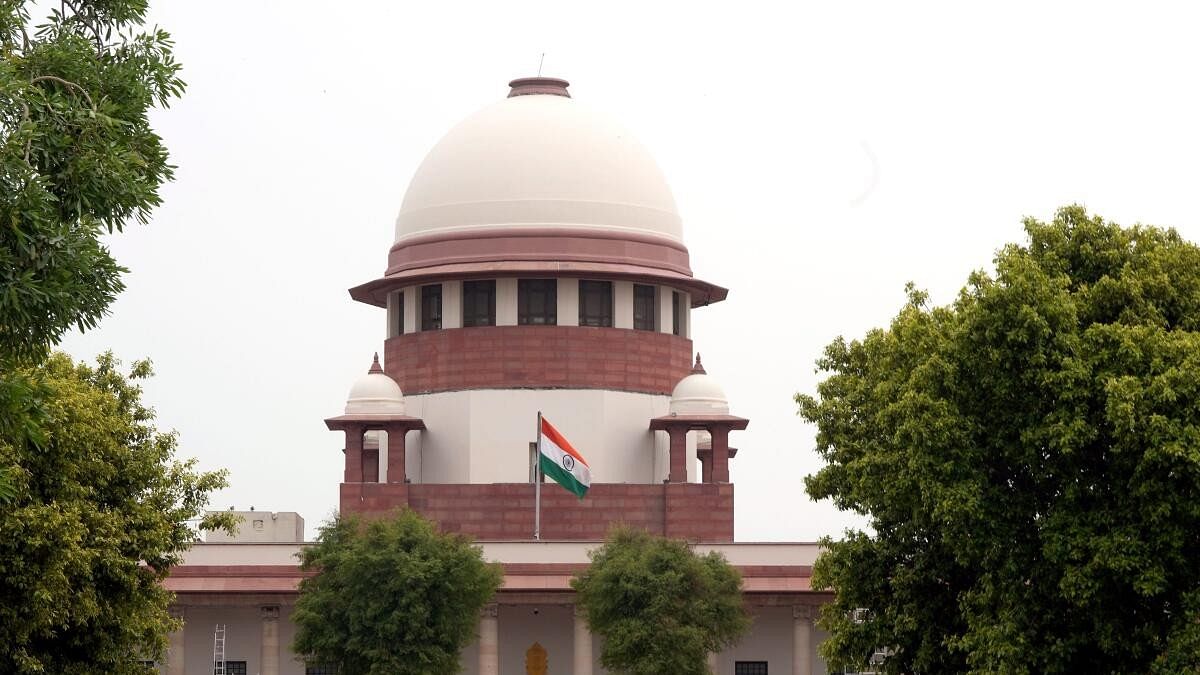
The Supreme Court of India.
Credit: PTI Photo
New Delhi: The Supreme Court on Monday allowed the Jharkhand government not to appoint till December 3 expert members to the independent fact-finding committee directed to be constituted by the high court to identify infiltrators from Bangladesh in the state.
A bench of Justices Sudhanshu Dhulia and Ahsanuddin Amanullah also sought a response from the Centre on a plea of the Jharkhand government challenging the September 20 order of the high court.
During the hearing, senior advocate Kapil Sibal appearing for the Jharkhand government pointed out that the state has objection to forming any such panel. The state has also opposed the claim of illegal immigration resulting in a change of demography made by PIL petitioners Danyaal Danish and Soma Oraon before the high court.
Justice Dhulia said that the high court has said that a fact-finding committee is needed but it left it to the state government.
"We need to hear this matter," Justice Dhulia told Sibal and observed that it is a fact that the tribal population is reducing in the state.
Sibal said it is a non-judicial issue and the high court should not have ordered for constituting the panel.
The bench ordered that till the next date of hearing, December 3, liberty is granted to the Jharkhand government to not appoint members to the fact-finding committee.
The state government in its appeal said that the fact-finding committee was appointed despite the fact that a report was submitted by the Deputy Commissioners of six districts (Godda, Jamtara, Pakur, Dumka, Sahibganj, and Deoghar) wherein no such illegal migration was found except in two cases of Sahibganj district.
It said the state authorities are dealing with the two cases of illegal migration as per the procedure.
The state government further contended that it has objected to the appointment of the committee and the claim of PIL petitioners Danyaal Danish and Soma Oraon before the high court of illegal immigration resulting in change of demography are non-existent.
On September 20, the high court in its order said, “The concern of this Court in expressing its view to have a fact-finding committee for the purpose of identifying the infiltrators for taking remedial measures said to be curative in nature so that the interest of the Tribal people of that region be safeguarded, otherwise, the result would be that the tribal population in the entire area will extinguish.”
It had said that if there is an embargo in the transfer of the lands of raiyats and the raiyat has been defined as the local residents of that region under the Santhal Pargana Tenancy Act, 1949, then where is the question of decrease in the population of the tribal and even if the population is decreasing if at all, it is "very serious issue and the same is to be dealt with strictly".
"The court, however, thinks it proper that since the matter relates to the field, it will be apposite to first have a proper empirical enquiry/research to be made by a reliable fact-finding body so that the Court may have a chance to see the original facts and figures, before making up its mind and passing orders to cure the situation," the high court has said.
It had directed the Jharkhand government and the Centre to have a combined sitting and finalise the members of the committee, agendas before it and other formalities.
"It is also expected that in the same meeting or thereafter, as scheduled, the preventive measures to halt infiltration, as could be gathered from the affidavit of the state, may be discussed," it had said.
The two PIL petitioners before the high court raised the issue of infiltration and illegal immigrants, claiming they are changing the demography due to a decrease in the tribal population in the region.
They pointed out that Sauria Paharia is a primitive tribe of Jharkhand, which mainly resides in the Santhal Pargana region of Sahebganj, Pakur, Godda, Dumka and Jamtara districts and some populations of this tribe also reside in Ranchi, West Singhbhum and Dhanbad districts also.
"It is the further case of the petitioner that certain tribals whose numbers are limited and they are the aboriginals of the districts of Sahebganj, Pakur, Godda, Dumka, Jamtara and Deoghar but their population is decreasing because of the forcible conversion initiated by Bangladeshi Muslims and they are tactfully allowing the population of the Tribals to leave the area where they are dominant," the high court has noted.